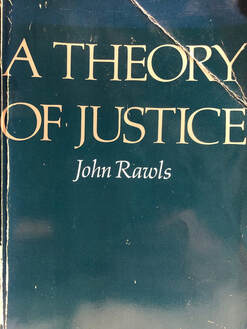
Political philosophers differ in their ideas on the nature of the most basic social cooperation and how government evolves from it. Often, the differences in political philosophy arise from different assumptions about human nature. Some assume humans to be fundamentally good creatures. In this context, good is defined as accepting social cooperation as a foundational value and subordinating self interest enough of the time to prevent unnecessary harm to the group. On this model, good people will, if properly informed, comply with a natural law where all are treated equitably and none will resort to violence except in self defense. Others assume humans to be fundamentally selfish creatures who will use any means necessary, including violence, to ensure the most favorable distribution of social goods for themselves even if their actions put the group at risk. On this view, any social agreements are fundamentally coercive and the chief characteristic of government is power and the monopoly of violence. It seems likely that there is no definitive "human nature" corresponding to one or the other of these extremes,
The thought experiment by which political philosophers justify their preferred form of government is to project their vision of human nature backwards to some imagined, pre-governmental state of nature. Various visions of human nature have led to different depictions of the state of nature and have been used to justify very different forms of government. Often, the presumption is that individuals surrender the "freedom" of the state of nature to enter into a government that is based on a social contract.
But as we noted previously, the imagined "freedom" of a pre-social state is a fiction. First, the idea of a pre-social state is itself an illusion because the long period of vulnerability associated with human childhood demands some minimal social cooperation as a starting point. We are inherently social animals. Second, what we commonly refer to as freedom arises only when social cooperation expands to the point where specialization is possible. Specialization increases efficiency in meeting basic needs, and a surplus of time allows individuals freedom to choose certain voluntary activities over the tasks that would otherwise be required to meet basic needs.
As the modes and methods of social cooperation become more complex (in order to generate more surplus time and resources), one function of government is to manage the complexity of social cooperation. Ideally this is undertaken with the goal of enabling the greatest amount of freedom and well-being possible for citizens. Another function is to arbitrate the inevitable conflict that arises among stakeholders in the course of cooperative endeavor. In order to be able to truly serve as the arbiter of conflict, the state must possess the authority to force compliance with its mandates. In other words, the state must have a monopoly on the use of force to support the law.
In the next essay, we'll consider the merits of our United States government in performing these functions.

 RSS Feed
RSS Feed
